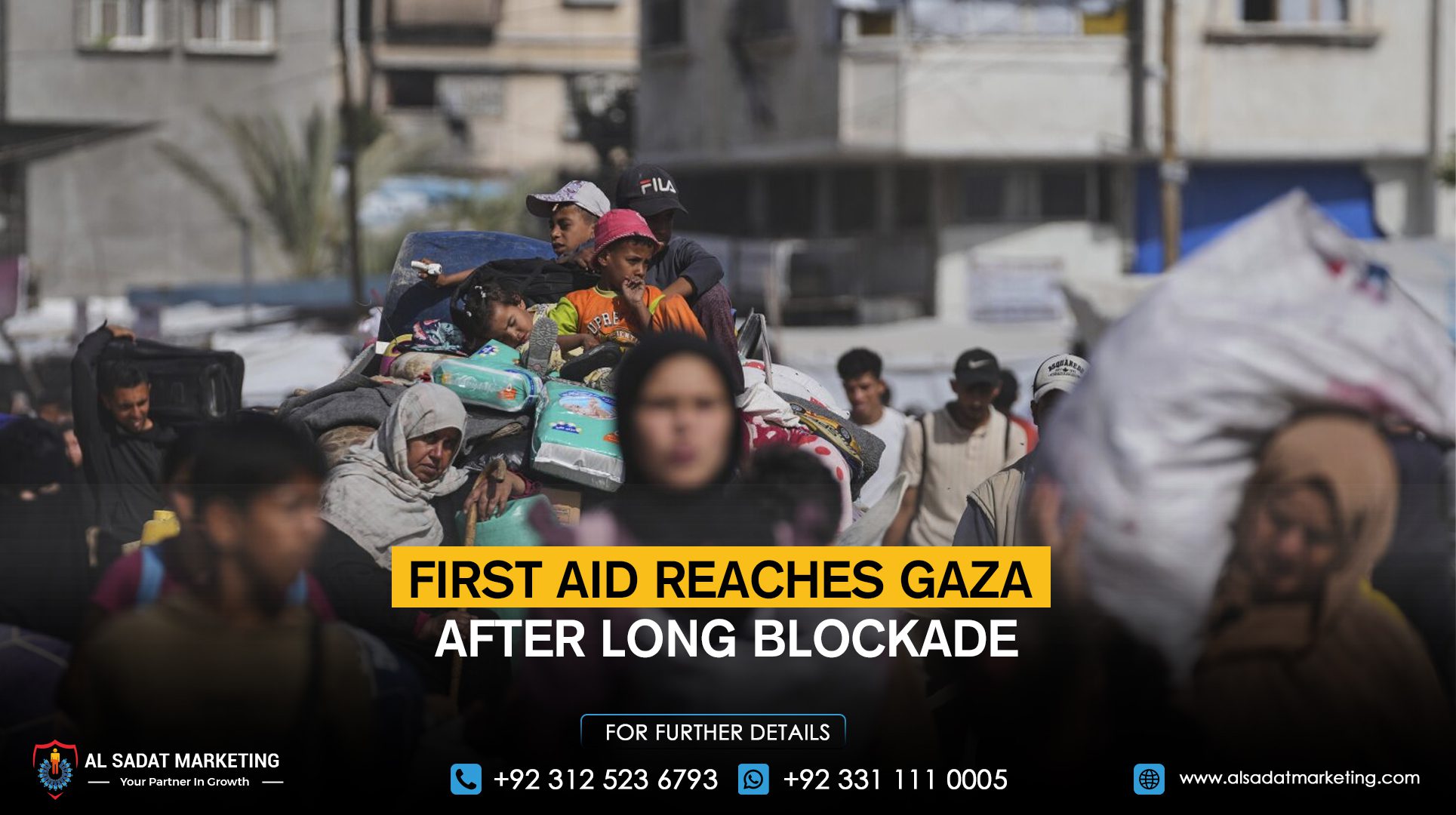Israel Allows First Limited Aid into Gaza After Nearly Three Months, Amid Global Outcry Over Starvation
After nearly three months of a complete blockade, Israel has finally allowed a small batch of humanitarian aid trucks into Gaza, as pressure mounts globally over the deepening humanitarian crisis in the besieged Palestinian territory.
The United Nations confirmed that a limited number of aid trucks entered through the Karem Abu Salem (Kerem Shalom) crossing on Monday, marking the first delivery since early March. The move comes amid intensifying Israeli military operations and a death toll that has reportedly surged past 150 Palestinians in just 24 hours.
Aid Still ‘Nowhere Near Enough,’ Warns UN
UN humanitarian chief Tom Fletcher called the aid entry “welcome but grossly inadequate,” urging Israel to allow significantly more aid starting immediately. “This is a drop in the ocean,” he stressed, as Gaza faces the worst food insecurity in recent memory.
Also read: State Bank starts ‘Go Cashless’ drive before Eid
The World Health Organization (WHO) issued a dire warning: 2 million people in Gaza are at risk of famine. WHO chief Dr. Tedros Adhanom Ghebreyesus told the World Health Assembly that 160,000 tonnes of food and life-saving supplies remain stuck at the border, just minutes away from families in desperate need.
Blockade Since March 2
Israel imposed a total blockade on Gaza on March 2, following the deadly October 7 Hamas-led attack that killed over 1,100 people in southern Israel. Until then, Gaza received more than 500 aid trucks daily.
The current delivery, reportedly just nine trucks, follows increasing international criticism and what Prime Minister Benjamin Netanyahu admitted was pressure from allies, including the United States and European partners.
“In order to win in Gaza, we need to solve this issue somehow,” Netanyahu said in a video message, adding that even Israel’s closest friends “cannot accept images of mass hunger.”
Internal Split in Israeli Government
The limited aid move triggered a political backlash within Netanyahu’s far-right coalition. National Security Minister Itamar Ben-Gvir slammed the decision as a “grave mistake,” while Heritage Minister Amichai Eliyahu called it a “tragedy” that would hurt Israel’s war goals.
Critics and rights groups, including the Council on American-Islamic Relations (CAIR), called the delivery “a PR stunt” and accused Israel of using starvation as a tool of war.
International Condemnation Grows
Western allies have escalated their warnings. The UK, France, and Canada released a joint statement condemning Israel’s restrictions, warning of possible violations of international humanitarian law and hinting at sanctions.
A separate call from 22 countries, including Germany, Ireland, Japan, Australia, and all Nordic nations, urged Israel to fully reopen aid access into Gaza without delay.
Ceasefire Talks Still Stalled
Meanwhile, indirect ceasefire negotiations in Doha between Israel and Hamas have stalled, according to sources cited by Reuters. Israel proposed terms including a ceasefire, hostage deal, and the exile and demilitarisation of Hamas—conditions the group has repeatedly rejected.
Ongoing Military Assaults
Despite the aid trickle, the war rages on. Israeli forces launched over 30 airstrikes within an hour in Khan Younis, killing at least 84 Palestinians on Monday, according to medical sources. Gaza’s health authorities say hospitals are near collapse, lacking fuel, medicine, and power, with no advance notice given about the aid trucks.










